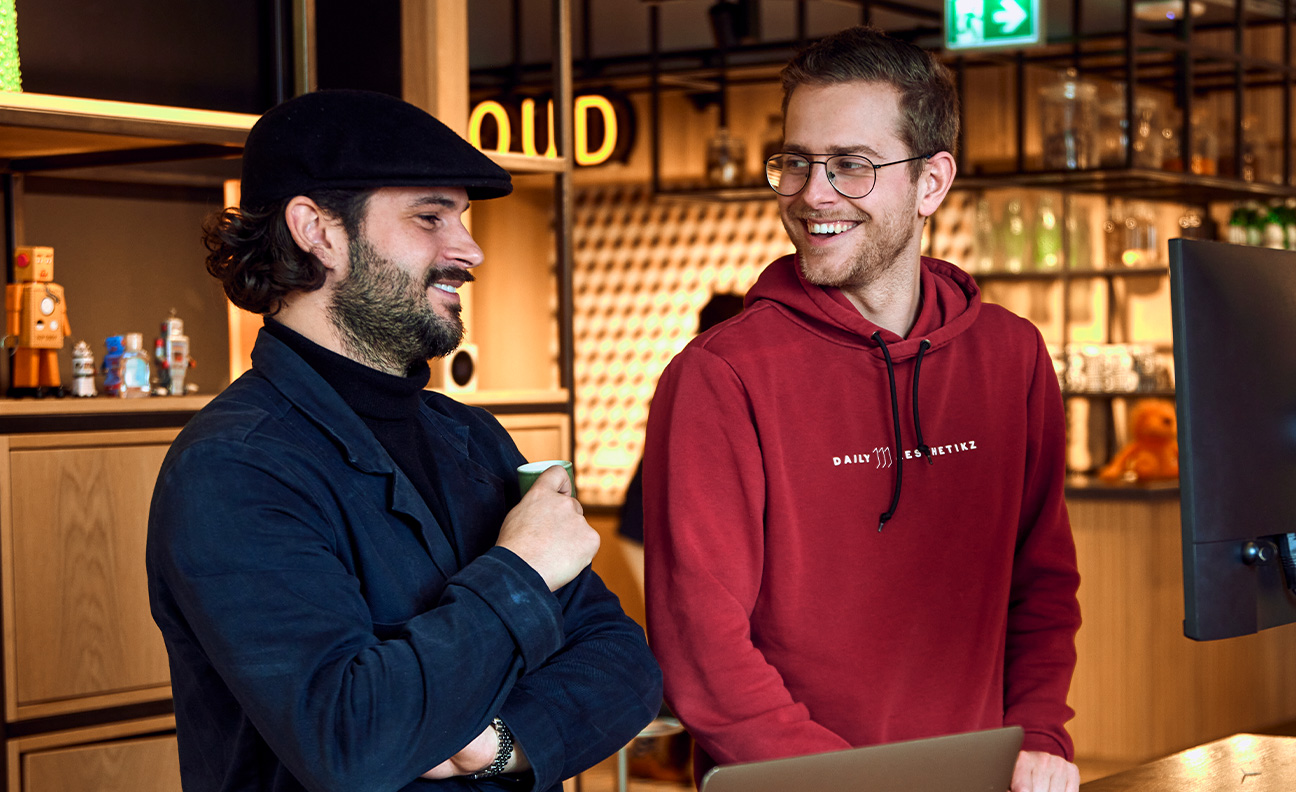Guidance for managers on interviews

Managers often encounter this scenario: a candidate appears ideal on paper and performs well during interviews, yet doesn’t turn out to be the perfect fit once employed. This situation is frustrating for both the manager and the employee. How can managers genuinely understand a candidate within the limited timeframe of the interview process? Kathelijn Loos offers his expert advice.
Mastering the matching process
“Managers should not underestimate the significance of a personality match,” Kathelijn advises. “Aiming for a lasting partnership, the compatibility must extend beyond job responsibilities to include team dynamics and company culture. The candidate’s motivations and genuine interest are as crucial as their professional qualifications. It’s essential to ascertain whether they truly wish to join your organisation to prevent mismatches during the hiring process.”
“Kathelijn recounts a young professional who was hired for his exceptional communication skills during an impressive interview. However, the role demanded more technical expertise than anticipated, resulting in a mismatch. Despite this, the management recognised his value due to the strong personal connection and successfully reassigned him within the company. This example highlights the importance of personal compatibility, offering more flexibility and solutions.”
Creating the right environment for a positive beginning
The interview’s success is not solely determined by the questions asked but by the atmosphere established by the manager. “Creating an approachable environment is essential. The initial conversation sets the tone for future interactions and determines whether the candidate will feel comfortable addressing concerns,” emphasises Kathelijn. “A candidate’s nervousness typically indicates the interview’s significance. Maintaining an accessible attitude on your part by beginning the conversation in a relaxed manner can alleviate the tension. As a result, the genuine personality of the candidate may surface earlier.”
Selecting the appropriate interviewer can significantly impact the candidate’s comfort and engagement. “For instance, selecting a young, international colleague to interview a young professional can foster a stronger connection,” Kathelijn notes. Representation matters in creating an inclusive atmosphere.
By reviewing the candidate’s resume and preparing personalised questions in advance, managers demonstrate their genuine interest. “Exploring their career choices provides insights into their values and decision-making process, revealing more about their personality,” Kathelijn explains.

Beyond the standard questions
Uncovering a candidate’s personality, skills, and cultural fit in a brief interview is challenging but essential. Presenting complex scenarios that require thoughtful responses can shed light on the candidate’s adaptability and creativity.
“Introducing realistic challenges tests their practical skills and cultural alignment. Discussing your company’s core values and how the candidate would embody them in real-life situations offers a clear perspective on their integration into your team and culture.”
Scenarios
If you want to discuss scenarios during the job interview, there are several approaches you can take. The first option is to introduce a general case during the conversation. In this instance, the specific answer is less important than the journey to that answer. This approach provides a clear insight into the candidate’s reasoning and thought processes. How does the candidate think, is the explanation logical, and when do they seek assistance? Another option is to ask the candidate how they envision achieving success in the first three months. How realistic (or not) is their response? Do their expectations align with reality?
Identifying true motivation
Truly motivated candidates show depth in their answers, reflect their understanding of the company culture and can make clear connections between their skills and the requirements of the position. They ask thoughtful questions that demonstrate thorough preparation and a genuine interest in the role and the company.
"Be alert to inconsistencies or generalities in their stories. Genuine motivation is often detailed and personal, while superficial motivation may manifest itself in vague answers or a focus solely on the benefits of the position. Conduct an open dialogue, giving the candidate space to share and reflect," suggests Kathelijn.
Being honest and open about the role and the company helps assess the candidate's motivation and fit. "By painting a realistic picture of both challenges and opportunities, you can assess the candidate's ability to contribute to the success of the team and company," Kathelijn continues. "For example, I heard a manager say to an applicant, 'This is not the sexy department where we build the modeling landscape. We work with a lot of data and complex systems, you're standing here with your paws in the mud.' It may feel silly, but it's always best not to sugarcoat things!
"Some questions that we ask with good intentions can be considered rude in other cultures, leading to misunderstandings.”
Addressing cultural and generational nuances
With an increasing number of internationals in the workforce, it’s crucial to understand and respect cultural nuances during interviews. “Proper preparation and understanding of the candidate’s cultural background promotes respect and understanding,” states Kathelijn. “Adapting your approach to suit the candidate’s cultural context can prevent misunderstandings. “In our individualistic culture, it’s common to talk about yourself, your hobbies, and where you’re from during an introduction. In contrast, in a collective culture, a personal introduction during such a conversation typically focuses solely on work.”
Some questions that we ask with good intentions can be considered rude in other cultures, leading to misunderstandings. For example, the common interview question “What are you proud of in your career?” can be quite unusual and therefore uncomfortable in a collective culture. In such cases, it’s better to ask a different question.
Leading diverse generations requires openness and appreciation for different perspectives. “Show respect for the insights of younger generations and the experience of older ones,” Kathelijn concludes. “Understanding the characteristics of various age groups can improve the interview process and mutual learning. “Demonstrate that you value both the fresh insights of younger generations and the experience of older ones,” Kathelijn continues. “Familiarize yourself with the characteristics of the different generations in the workplace. A young candidate can learn a lot from your team, but also consider what you can learn from the candidate. Be curious!”
Want to know more?
With our extensive experience in mediating between young professionals and managers, we know what works. We know how to find them, but also how to retain them! Kathelijn is here to discuss how to refine your interviewing techniques.



